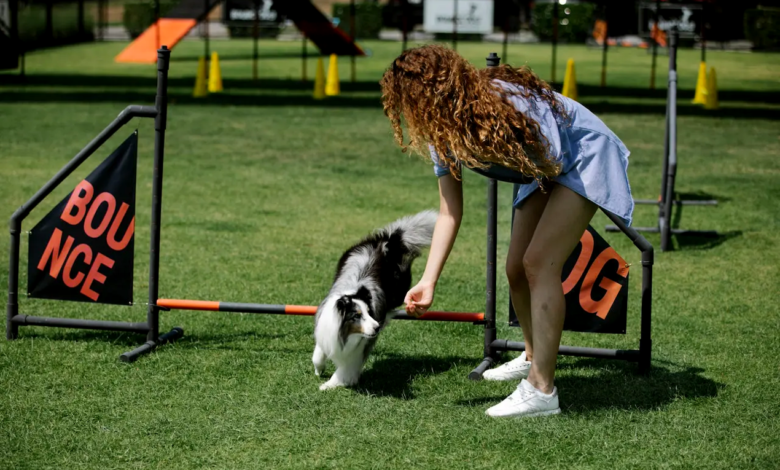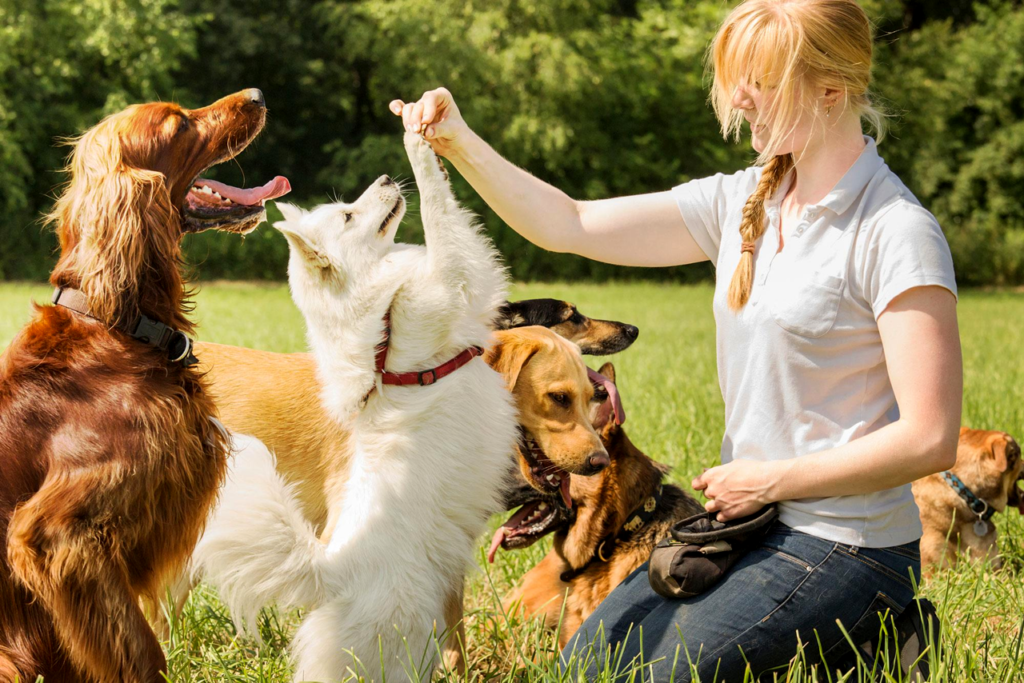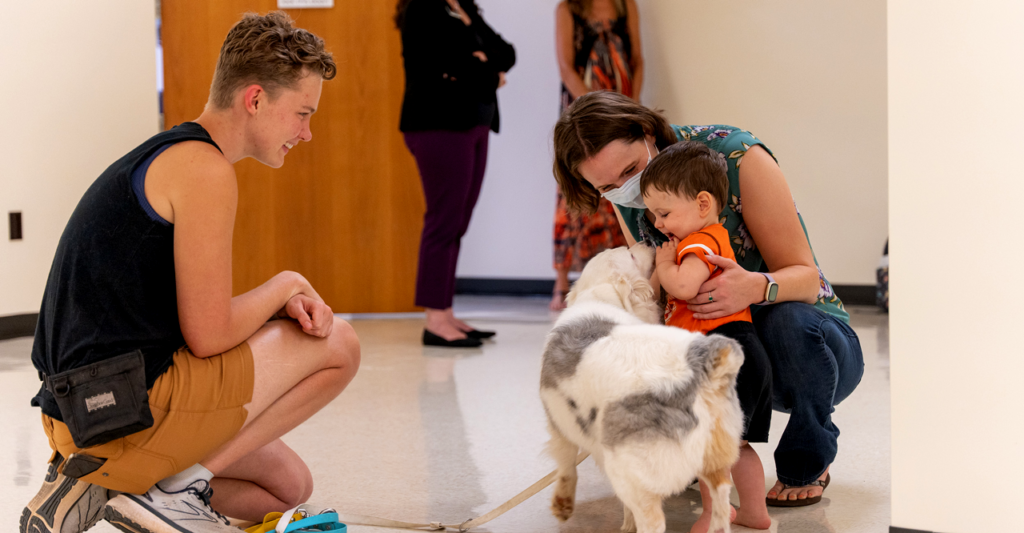
Choosing the Right Pet Trainer: What to Look For
Pet ownership comes with immense joy and responsibility. Whether you have a new puppy, a mischievous kitten, or a rescue with a troubled past, proper training is essential for a harmonious relationship between you and your furry companion. However, not all pet trainers are created equal. Choosing the right one can make a world of difference in your pet’s behavior and well-being. So, what should you look for when selecting a pet trainer?
Read More: Training Tips for Stubborn Pets
Choosing the Right Pet Trainer

When considering a pet trainer, experience and expertise are paramount. Look for trainers who have spent years working with various breeds and temperaments. Experience not only hones their skills but also equips them with the knowledge to handle different situations effectively. Additionally, certifications and qualifications are indicative of a trainer’s commitment to staying updated on the latest training techniques and best practices. A trainer who continually seeks education in their field demonstrates a dedication to providing the best possible service to their clients and their pets.
Pet Training Methods
The methods used by a trainer can greatly influence your pet’s learning experience and overall well-being. Positive reinforcement techniques, such as rewards and praise, are widely regarded as the most effective and humane way to train animals. These methods focus on reinforcing desirable behaviors rather than punishing undesirable ones, creating a positive learning environment for your pet. On the other hand, punishment-based techniques can lead to fear, anxiety, and aggression in pets, undermining the trust between you and your furry friend. Therefore, it’s crucial to ensure that the trainer’s methods align with your values and goals for your pet’s training.
Understanding Animal Behavior
A deep understanding of animal behavior is essential for effective pet training. Trainers who understand the underlying motivations behind your pet’s actions can tailor their training approach accordingly. Each pet is unique, and what works for one may not work for another. A good trainer takes the time to observe and assess your pet’s behavior, identifying the root causes of any issues and developing a personalized training plan to address them. By understanding your pet’s perspective, a trainer can build trust and rapport, laying the foundation for successful training outcomes.
Reviews and Testimonials
Before committing to a pet trainer, it’s essential to research reviews and testimonials from previous clients. These firsthand accounts provide valuable insights into the trainer’s methods, professionalism, and effectiveness. Look for consistent positive feedback and success stories, indicating that the trainer has a track record of delivering results. Pay attention to any specific concerns or criticisms mentioned in reviews, as they may be indicative of areas where the trainer could improve. Ultimately, hearing about real-life experiences can help you make an informed decision about which trainer is right for you and your pet.
Facilities and Resources
The training environment plays a significant role in your pet’s learning experience. It should be safe, clean, and equipped with the necessary resources to facilitate training sessions effectively. Assess the facilities where training will take place, ensuring that they meet your standards and provide a comfortable environment for both you and your pet. Adequate space, proper equipment, and access to amenities such as water and shade are all important considerations when evaluating training facilities.
Compatibility
Compatibility between you, your pet, and the trainer is essential for a successful training relationship. Trust and communication are key components of this compatibility. Take the time to meet with potential trainers and observe how they interact with your pet. Look for signs of mutual respect and understanding, as well as clear communication and rapport between the trainer and your pet. A trainer who can effectively communicate with both you and your pet is more likely to facilitate positive training outcomes and build a strong bond between you and your furry friend.
Customization

Every pet is unique, and their training should reflect that. Look for trainers who offer customized training plans tailored to your pet’s specific needs and behaviors. A one-size-fits-all approach is unlikely to address the individual challenges and strengths of your pet effectively. By tailoring their approach to your pet’s personality, temperament, and learning style, a trainer can maximize the effectiveness of their training efforts and set your pet up for long-term success.
Cost and Value
While cost is undoubtedly a factor in choosing a pet trainer, it’s essential to consider the value provided. Investing in quality training can save you time and frustration in the long run by addressing behavior issues early and preventing future problems. Balance cost considerations with the long-term benefits of effective training, weighing the potential return on investment in terms of improved behavior, enhanced communication, and a stronger bond between you and your pet.
Continued Support
Effective training doesn’t end after the initial sessions. Look for trainers who offer ongoing support and follow-up sessions to reinforce learning and address any challenges that arise. Consistency is key to maintaining your pet’s new behaviors and ensuring long-term success. A trainer who remains accessible and supportive throughout your pet’s training journey can provide invaluable guidance and assistance as you navigate the ups and downs of pet ownership.
Credentials and Affiliations
When evaluating pet trainers, be sure to check for credentials and professional affiliations that demonstrate a commitment to excellence in pet training. Trainers who are members of reputable organizations or have earned certifications from recognized institutions are more likely to adhere to high standards of ethics, professionalism, and expertise. These credentials provide assurance that the trainer has undergone rigorous training and meets established criteria for competence and proficiency in their field.
Trial Sessions
Many trainers offer trial sessions or consultations to allow you to experience their methods firsthand before making a commitment. Take advantage of these opportunities to assess compatibility and determine if the trainer is the right fit for you and your pet. During the trial session, pay attention to how the trainer interacts with your pet, the clarity of their instructions, and their ability to address any questions or concerns you may have. Trust your instincts and choose a trainer who makes you feel confident and comfortable in their abilities.
Communication Skills
Clear communication is essential for successful pet training. A good trainer should be able to effectively convey instructions and provide feedback in a way that you understand. They should also be able to communicate clearly with your pet, using body language, tone of voice, and positive reinforcement to convey messages effectively. Pay attention to the trainer’s communication style during initial meetings and trial sessions, ensuring that they can articulate their methods and expectations clearly and professionally.
Ethical Considerations

Ethical considerations should also play a significant role in your decision-making process when choosing a pet trainer. Avoid trainers who employ harsh or punitive methods that could harm your pet physically or emotionally. Instead, prioritize trainers who prioritize the well-being and happiness of the animals in their care, using positive reinforcement techniques to build trust and confidence. Ask about the trainer’s approach to handling challenging behaviors and ensure that it aligns with your values and beliefs regarding animal welfare and humane treatment.
Read More: Training Tricks: Teach Your Pet These Fun and Useful Commands
FAQs
- How do I know if a trainer is experienced? Look for trainers with years of experience working with various breeds and temperaments, as well as certifications and qualifications in pet training.
- What if my pet doesn’t respond well to the training methods? It’s essential to communicate openly with your trainer and discuss any concerns or challenges. They may be able to adjust their approach or offer alternative techniques.
- Are there any red flags I should watch out for when choosing a trainer? Beware of trainers who use harsh or punitive methods, have poor communication skills, or lack proper credentials and affiliations.
- How long does it take to see results from pet training? The timeline for seeing results can vary depending on factors such as the pet’s age, temperament, and the complexity of the behaviors being addressed. Consistency and patience are key.
- What if I can’t afford professional pet training? There are still many resources available for pet owners on a budget, such as online tutorials, books, and community classes. However, professional training may offer faster and more effective results.
The Final Words
This comprehensive guide covers all the essential factors to consider when choosing the right pet trainer for you and your furry friend. By prioritizing experience, positive training methods, understanding of animal behavior, and compatibility, you can find a trainer who will help you build a strong bond with your pet based on trust, communication, and mutual respect.







